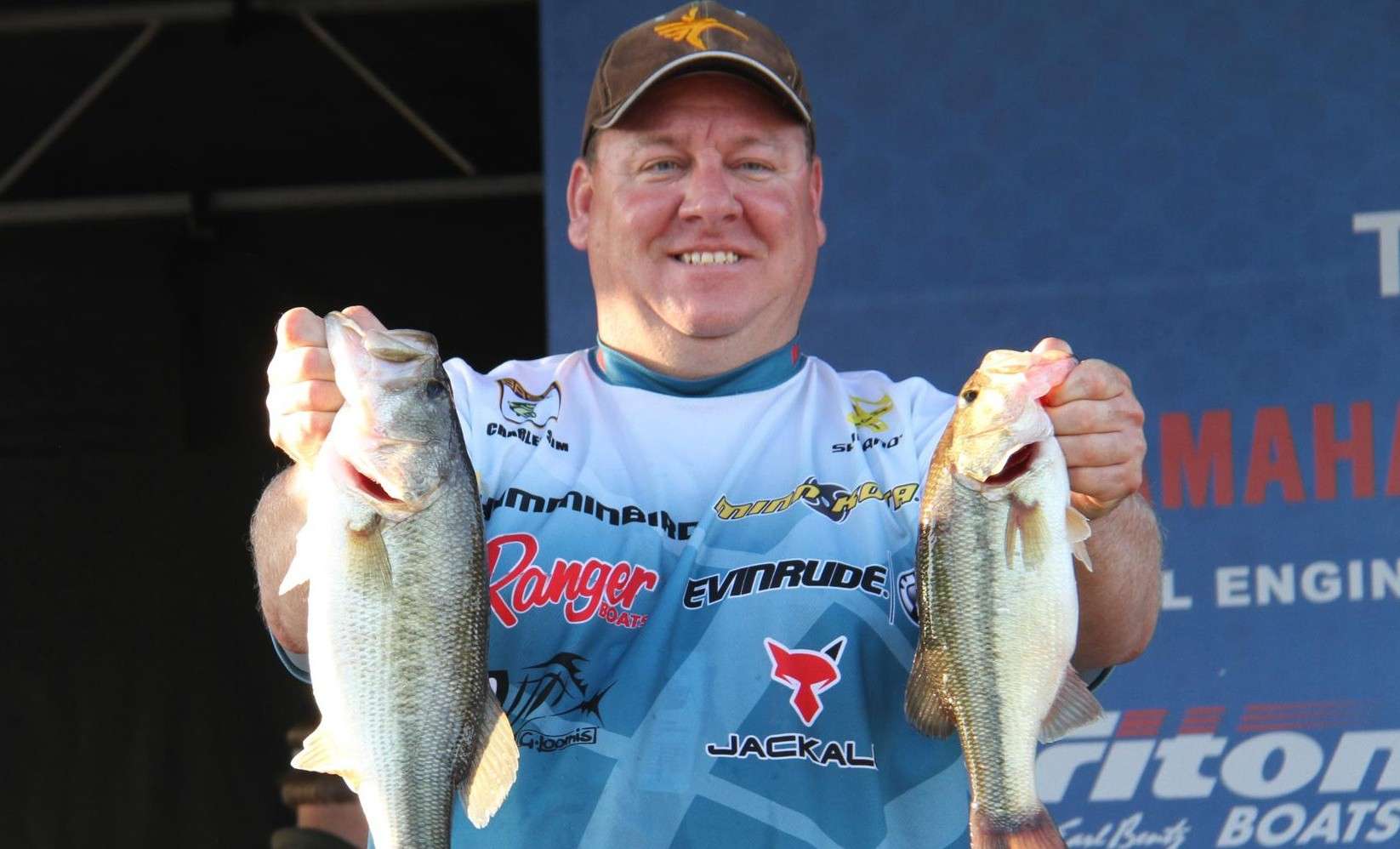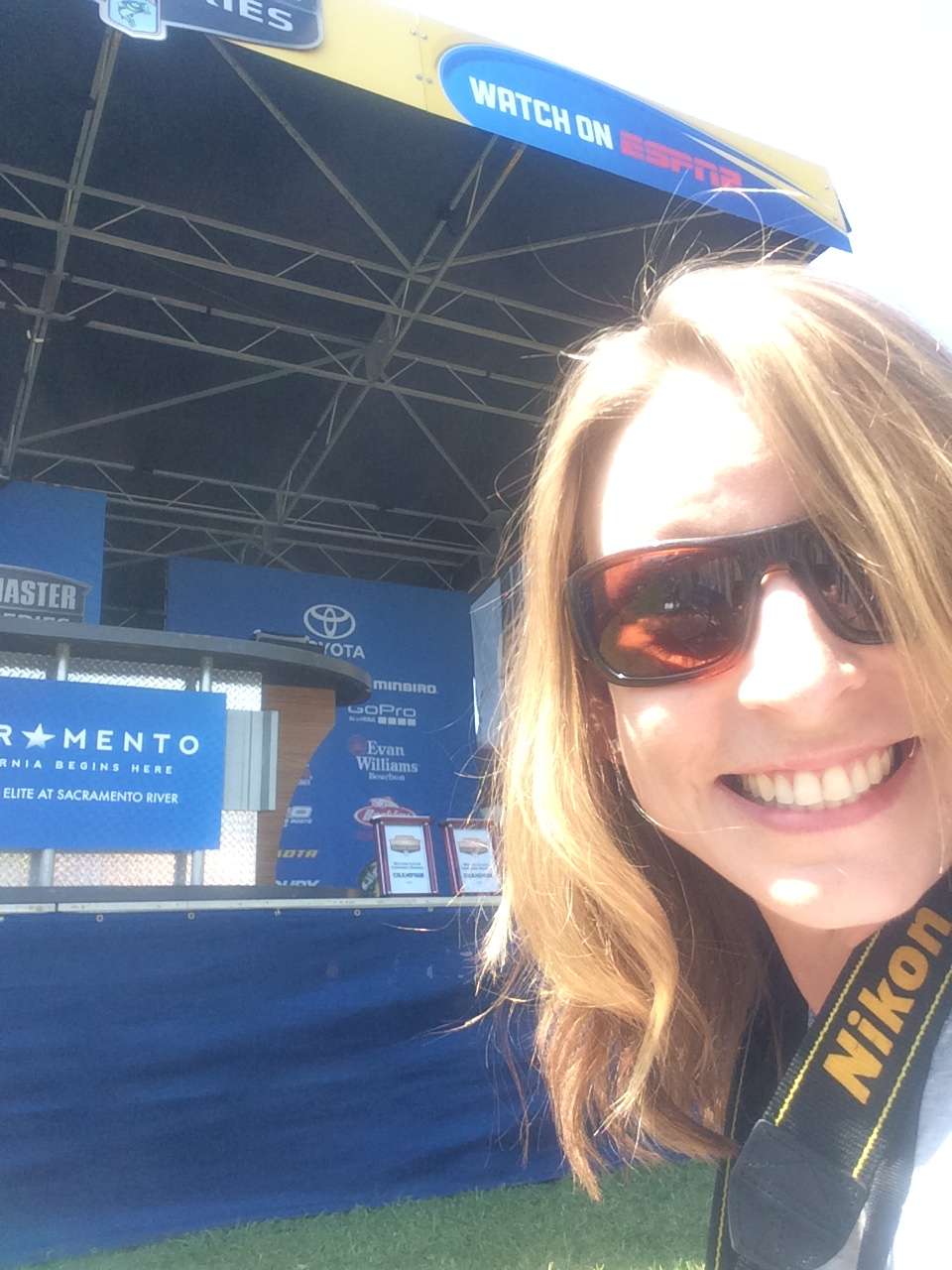
Charles Sim, the first Ontario B.A.S.S. Nation representative to qualify for the Bassmaster Classic via the B.A.S.S. Nation, sat down for a question-and-answer session with Outdoor Action Ontario. You can read the full article here. Below is an excerpt.
Outdoor Action Ontario (OAO): Charles, we’re sitting here in Ottawa in the middle of January and the talk of the B.A.S.S. Nation is about an angler from Ottawa Valley South Bassmasters, Charles Sim, the first Canadian in over 20 years and the first ever Ontario B.A.S.S. Nation member to be heading to the 2016 Bassmaster Classic to compete. How excited are you right now?
Charles Sim (CS): Actually, I get a little pique of excitement every time I hear it described like that. I get emotional ups and downs ranging from nervousness to the fear of failure, to the thrill of representing my fellow Canadian anglers and fans.
I have received so many notes and emails from people across North America wishing me well. That really adds to the excitement, knowing that so many people are following me on this adventure.
OAO: Those feelings you mentioned are the very same that you hear professional athletes at the highest level discuss when they are going into a high level of competition, and as you know the Bassmaster Classic has been called the “Super Bowl of Bass Fishing.” Do you take any comfort knowing that your fellow competitors at the Classic may be feeling some of those same feelings you are having right now?
CS: Yes, I totally do. A lot of the veterans are accustomed to those pressures, of course. I’ve been doing research and watching footage of the 2013 Classic (that was also down in Tulsa) and hearing some of those competitors talk about those types of emotions like being nervous, helps alleviate some of those feelings for me, actually.
As well, I’ve come in contact with a few of the other competitors and having seen how they are dealing with things, they are dealing with the same range of emotions as I. When it comes down to it — we’re all just anglers, we’re all the same.
I always used to wonder, when I was in the boat going through the ups and downs and frustration and joy of just a regular day of club-level tournament fishing, and wondering if the guys who competed in the top echelons felt the way I did in those moments. And in fact, they do — as I came to find out.
OAO: You and I have actually met personally through tournament fishing and we both compete in the same club — the Ottawa Valley South Bassmasters. It’s an amazing organization, I’m a co-angler and you are a boating member. You’re at this incredibly high level in bass angling, and I’m just starting my tournament career.
You will hear people like me say that someone like you is a big inspiration to them. I think you understand that, and I think you’ve also been there yourself before. Can you share some thoughts with us about when you started your tournament angling career?
CS: I joined my first bass-fishing club when I moved to Ottawa, Ontario in 1999. I wasn’t much of a bass fisherman. I wasn’t geared up for it, I didn’t understand it. I found out about these clubs where you can compete as a non-boater (co-angler) and have the opportunity to get on a boat with different anglers. Not having a boat at the time, I thought this was just the opportunity for me.
My first tournament I hooked up with another angler who was in his first year as a boater.
We went out the week before the Tournament to pre-fish and caught some fish –but to my surprise my partner, after un-hooking the first fish – placed it in the live-well. I asked why he did that, I was pretty sure you usually let your fish go. He said he wanted to catch some fish for his neighbour to eat! He caught and kept five bass that day!
Being my first experience I didn’t want to really complain but come tournament day, we didn’t catch our limit of fish throughout the entire day. I was pretty sure it was our pre-fishing strategy and I kind of threw it in my boaters face that we should have let those fish go the week before from our spots as opposed to keeping them.
OAO: So obviously we all know about pre-fishing, those of us who tournament fish, and that is a pretty outrageous story considering.
CS: Of course, obviously you don’t kill the very fish you are trying to catch – it was quite silly looking back at it now and with everything I know. Still, I spent my first two seasons as a nonboater just soaking everything up like a sponge — even the negatives were taken as learning experiences. I absorbed as much info as I could. Then I fished a big tournament in the US, a tournament down in Tennessee as a non-boater and I actually got to fish with some of the biggest names in fishing at the time.
I finally realized, these Elite-level pros are the exact same as myself, as you, as the people reading this who like to fish — they just put more time money and effort into their angling. So, I came home and in May 2001 bought my first boat and stepped up in my club as a boater, and that was the start of it all, really.
OAO: Charles, a lot of people look at fishing as a way to escape the stress of day to day life. Still, you are competing at the highest levels possible when it comes to angling. I’m curious if it is still as fun as it used to be when you were just “fun-fishing” or does the stress of it perhaps become a factor given you fish at such a high level?
CS: Well, first I try to live my life stress-free. I try not to let things that may bother another really affect me that way, so I’m fortunate in that I don’t really need fishing as that sort of “getaway” as opposed to just fun recreation.
That being said, I definitely get stressed at higher-level events — more when I’m doing poorly. Emotions can swing so much over the course of a natural day on the water. You can go from stress or anger from not doing well, to getting into a few good fish and it completely changes your outlook back to being more positive.
My stress in fishing just comes from struggling to figure the day out, or losing fish.
OAO: Along those lines, has there ever been a point in your angling career where you thought to yourself “Maybe I need to step back from tournament fishing”?
CS: Definitely. It’s an expensive, trying sport when you put your full effort into it and don’t get the results you want. There has been probably 2 or 3 years where September or October rolls around, and I’m just done — I’m emotionally drained, I’m financially drained and I started to think “Why I do this? Why do I put this effort into all of this”?
Then, usually a few months of winter goes by and I get psyched and pumped for the return of open water, and then I’m all ready to roll again. (laughter)
OAO: Funny, I know that feeling. (laughter)
OAO: Looking back over your career, there have been a lot of advancements involving rods, reels, baits and electronics. What are some gear and electronics trends that have played a role in your personal angling development, and where do you see your personal experiences with equipment playing a role at the Bassmaster Classic?
CS: There have definitely been a lot of trends over bait selection over the years. When I first started I was a “Flapping Shad” guy — a paddle-tail jerkbait. I transitioned to a jig, and from that to the craw-styled baits I use now. As my fishing style has evolved, so has my baits of choice, along with my basic expectations of my time on the water. The jig replaced the flapping shad because it got me bigger fish. The craw replaced the jig because it caught me more fish in certain situations.
Read the rest of the interview here.

